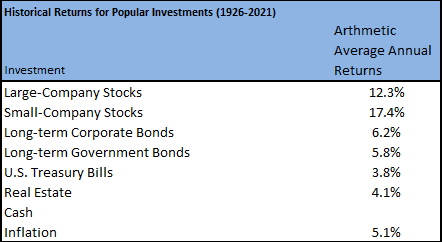Welcome to Raising InvestorIQ!
We all work very hard for the money we make! And at times, we’re able to manage our finances in a way that allows us to have excess cash flow.

More often than not, we take that excess cash and place it into savings, whether that means saving cash under the mattress or placing it in a savings account. And further still, many of us are savvy enough to search out investment opportunities, but we’re oftentimes unsure of the risks involved with such opportunities and don’t have the knowhow to make effective investment decisions.
There’s a lot of information out there, much of which is helpful but much of which is also misinformation! Let’s sift through the info, establish a solid framework from which to analyze opportunities, and work to identify some sound investments.
Stay Informed!
Now is the opportunity for you to potentially make your money work for you! If you have a basic understanding of investing, I am confident this site will aid in raising your investorIQ.
My investment approach is almost always focused on the long-term, and my strategy generally conforms to that of a value-investor. There are always exceptions to any rule, but for the most part, I’m always on the prowl for solid long-term, value-oriented investments.
I’ve developed my approach to investing by studying and drawing from great investors such as Warren Buffett, Ray Dalio, Benjamin Graham, and Philip Fisher, among others. I’ll share my thoughts, insight, and many aspects of my approach to investing within this blog with the aim of providing you with some valued perspective and knowhow.
Inflation, Taxes, and Real Purchasing Power
We’ve all seen inflation surge recently. According to U.S. Labor Dept data, the annual inflation rate for the U.S. is 8.2% for the 12 months ended Sept 2022! And inflation was 7.0% in 2021. That means the cost of everything is rising significantly!
The cost of food is up…the cost of rent is up…the cost of airfare is up…the cost of gasoline is up…the cost of health insurance is up! In fact, the cost of most everything is up! As a result, you definitely want to see the value of your savings go up as well!
Inflation – 2012-2022

Inflation eats into your savings! Taxes also eat into your savings!
The reality of inflation and taxes translates to a real reduction in purchasing power! To stay ahead of the game, we need to put our excess cash flow into investments that will allow us to stay ahead of things.
Investing is Key!
To maintain wealth and actual purchasing power, you therefore need to steer money into investment vehicles which will at least keep pace with the effects of taxation and inflation. On the other hand, if you want to increase wealth and actual purchasing power, you need investment vehicles which hold your money to earn rates of return which exceed the effects of inflation and taxation.
U.S. inflation has historically averaged 3.8% per year from 1960-2021. If you manage to earn a 5% return on your invested savings, income taxes can take away approximately 31% of that 5%, which means that you will be left with a real return of only 3.45%. This means that in a world of 3.8% inflation (currently trending higher), after paying income tax, you would be experiencing a real loss in purchasing power of -0.35% a year (or greater if inflation is higher). That’s why investing effectively for you to stay ahead is critical!

As you see below, there are significant differences exist between the historical average annual rates of return realized on various types of investments.
Historical Returns for Popular Investments (1926-2021)

Stocks Tend to Outperform!
Stocks clearly have provided the biggest bang for the buck over the long term, handily beating inflation as well as the other main asset classes. Savings accounts are averaging a paltry 0.09% return,[1] and CD rates are averaging returns below just 1.6%.[2] The above table also illustrates that in contrast to other investment vehicles such as real estate, bonds, and bills, the very best returns, on average, can be found by investing in company stocks, also known as equities. Investing in stocks can potentially assist in building wealth via returns of two forms – dividend yields and appreciation of value. Additionally, capital gains are also taxed at lower rates than income from wages: 15% versus up to 35%.
I’m looking forward to discussing various investment vehicles and the many aspects of investing via this website as a platform. Investing is strategic; it’s more of an art than a science. And while you don’t need an advanced degree in finance or a professional license to be a successful investor, you do need to exercise diligence in conducting research and analysis within the context of a sound investment strategy. It is the aim of Raising InvestorIQ to help you improve investing knowhow with relevant info, insight, and analysis so that you can begin to let your money work for you!
There will be a large focus on how to establish a long-term approach to investing to ultimately increase the value of savings and excess cash flow. Most of the focus will be placed on equities (common stocks of publicly traded companies), but I will discuss and provide analyses with respect to a number of aspects of investing.
[1] Perez, Lauren. “What Is the Average Interest Rate for Savings Accounts.” SmartAsset, 9 Apr. 2020, smartasset.com/checking-account/average-savings-account-interest.
[2]Bank Rate, http://www.bankrate.com/cd.aspx
